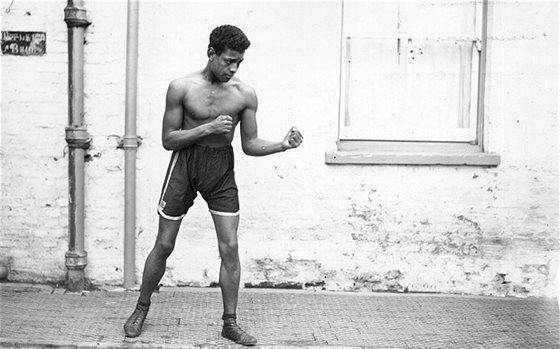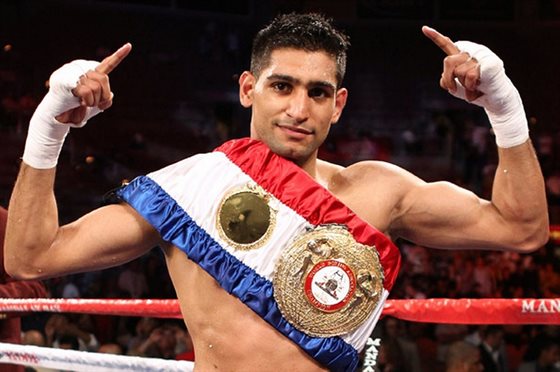Hidden histories of British boxers will finally be told in a new book being written by a De Montfort University Leicester (DMU) historian.
Dr David Dee has been awarded a research grant worth 84,000 Euro, which will enable him to spend the next two years researching and writing the book. It will focus on boxers from immigrant families or from ethnic minority backgrounds from the mid-18th century through to Amir Khan who won a world title at just 22 in 2009.

Len Johnson, the talented Manchester boxer who was not allowed to fight for Great Britain championships because he was black
Dr Dee said: “Boxing is a sport very closely associated with immigrants and minority groups and what I want to do is ask why this is the case, and what impact that has had on the history and identity of those competing and the communities they originate from.”
Chapters within Dr Dee's PhD thesis and first monograph focused on Jewish boxing, so this research is a natural follow-up, allowing Dr Dee to delve more widely into not only the experience of Jewish boxers but also those of Gypsy and Traveller, Irish, Italian, Asian and African Caribbean heritage.
RELATED NEWS
* Interested in studying history? Book onto our next open day
* Visit the archives at DMU, open to all
* DMU tackles loneliness in new sports memories project
He will be using personal papers gifted to archives by boxers who fought during the 20th century such as Manchester’s Len Johnson as well as newspapers, boxing publicity materials and records from inner city youth groups which often gave opportunities to up and coming young fighters. He will also be using the archives of the British Amateur Boxing Association which was gifted to DMU in 2016.
Boxing allowed people to gain a status and recognition out of the reach of their normal everyday lives. It provided a route out of poverty for many and drew huge crowds, whether the bouts were staged at well-known venues like Wembley Stadium or the Royal Albert Hall, or ‘small halls’ or warehouses located deep within the inner cities.

Amir Khan won the world title at just 22 years old
As Dr Dee points out, it also gave political weight to anti-Nazi campaigners too. During the 1930s, as Oswald Mosley’s Blackshirts marched through the East End, the Jewish community highlighted the success of its boxers to counteract stereotypes and undermine Fascist notions of Jewish ‘weakness’ and ‘cowardice’.
Dr Dee said the link between immigration, ethnicity and sport was only recently beginning to get the academic attention warranted. “In comparison to the amount we know and is written about sport and immigration in the United States, there is a lot of work to do to help us understand the links between sport and minority history and identity in Britain.
“When people think about immigration and minority lives, identities and communities they don’t think enough about sport and really, that’s a crucial part of who you are. It’s important for ideas of integration and responding to racism.
“There are some really strong personal stories that have to be teased out of the archives and I’m looking forward to getting started.”
Funding has come from the Gerda Henkel Foundation’s ‘Research Scholarship’ scheme, which supports research into the historical humanities.
Posted on Thursday 8 August 2019